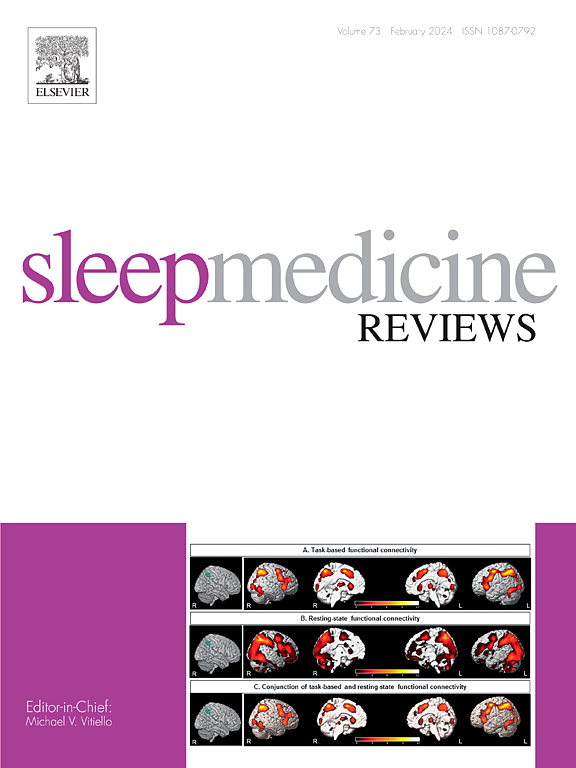A meta-analytic investigation of the effect of sleep deprivation on inhibitory control
IF 9.7
1区 医学
Q1 CLINICAL NEUROLOGY
引用次数: 0
Abstract
Sleep deprivation may have a deleterious effect on inhibitory control; however, this effect is not consistent across studies. To arrive at an overall estimate of the relationship between sleep deprivation and inhibitory control, this report used meta-analysis to summarise the magnitude of the effects of sleep deprivation on inhibitory control as measured by the Go/No-Go and Stop Signal Tasks. These are two widely used tasks in the literature. A systematic search of four databases (APAPsycINFO, Medline, CINAHL and Embase) from their inception to November 2023 identified 24 studies involving 712 healthy individuals. Separate random-effects models were used to estimate the effect size of sleep deprivation on performance in these tasks. The meta-analysis revealed a moderate negative effect of sleep deprivation on inhibitory control in both the Go/No-Go and Stop Signal Tasks. Given the importance of inhibitory control in everyday behaviour, future research should investigate the neural and neurophysiological mechanisms underlying this relationship and explore its impact in clinical populations.
睡眠剥夺对抑制控制影响的荟萃分析研究。
睡眠剥夺可能对抑制控制产生有害影响;然而,这种效应在所有研究中并不一致。为了全面估计睡眠剥夺和抑制控制之间的关系,本报告使用荟萃分析来总结睡眠剥夺对抑制控制的影响程度,这是通过Go/No-Go和Stop信号任务来测量的。这是文献中广泛使用的两个任务。系统检索了四个数据库(APAPsycINFO、Medline、CINAHL和Embase)从建立到2023年11月的24项研究,涉及712名健康个体。使用单独的随机效应模型来估计睡眠剥夺对这些任务表现的影响大小。荟萃分析显示,睡眠剥夺对“去/不去”任务和“停止信号”任务的抑制控制都有中度负面影响。鉴于抑制控制在日常行为中的重要性,未来的研究应该调查这种关系背后的神经和神经生理机制,并探索其在临床人群中的影响。
本文章由计算机程序翻译,如有差异,请以英文原文为准。
求助全文
约1分钟内获得全文
求助全文
来源期刊

Sleep Medicine Reviews
医学-临床神经学
CiteScore
20.10
自引率
3.80%
发文量
107
期刊介绍:
Sleep Medicine Reviews offers global coverage of sleep disorders, exploring their origins, diagnosis, treatment, and implications for related conditions at both individual and public health levels.
Articles comprehensively review clinical information from peer-reviewed journals across various disciplines in sleep medicine, encompassing pulmonology, psychiatry, psychology, physiology, otolaryngology, pediatrics, geriatrics, cardiology, dentistry, nursing, neurology, and general medicine.
The journal features narrative reviews, systematic reviews, and editorials addressing areas of controversy, debate, and future research within the field.
 求助内容:
求助内容: 应助结果提醒方式:
应助结果提醒方式:


